I recently realized…I like my creative agency job. F*CK
The first time I worked in an agency, I was 23 years old. It was the Recession, and I had moved to Denver with my then-boyfriend because life in LA was expensive. Like most people, I had been let go from my job and, by the grace of whatever, could stay afloat with restaurant work. But it was tough. My half of the rent was SIX HUNDRED WHOLE DOLLARS. So, we moved to Denver, where my boyfriend was from, and his band was based. I got a job at a nice wine bar, which I quit after two weeks of training to accept a job as the Assistant Manager of Steve’s Snapping Dogs for $25,0000 a year. This was such a dumb move. I made less than I would have at a wine bar, worked more hours, and smelled like hot dogs not pinot. But these are the fun choices you get to make when you’re 23.
Eventually, I left in favor of a more fragrant workplace: a tea shop.
I was still applying for any job that would catapult me back into a “real” job. I was VERY obsessed with having a “real” job, which somehow remained elusive for me but not for my immediate circle of peers, which left me with a dissonance I couldn’t shake. Why them and not me?
With two stints at jobs as a SEO copywriter and social media writer, I interviewed at two creative agencies. The process was my first peek agency life, and I wanted in. Man, I opined after both of these piddly entry-level jobs, so BADLY. And I made it pretty far into the interview process with both. Ultimately, I was caught in the chicken/egg dance of access to many industries––I didn’t have enough experience for the job. But I couldn’t get hired to obtain the experience necessary.
After what felt like a reluctant rejection on the part of one branding agency, I reached back out and asked if they’d be open to an internship so I could get the experience I so desperately needed. They agreed! Who wouldn’t be delighted to accept free work?
That internship led to a full-time role at the agency as an executive assistant to the most pompous, talentless man on earth for $24,000 a year. I was ecstatic. I didn’t care that the work was administrative and banal. I was working at an agency. A very small agency, but an agency, no less!
Being the industrious, make-your-own-opportunity kind of gal, I started offering to help on the creative team. And that was it. I was hooked on the energy, stress, creative challenge, and comraderie. I even started watching the first two seasons of Mad Men, which I ordered on Netflix, anxiously awaiting the arrival of the DVDs in the mail.
I’ve worked at several different agencies since then.
The last time I worked at an agency full-time, I made a big mistake––I left. After experimenting in several creative and communications roles at one of the best agencies I’ve ever work for, I felt like it was time to move on. They had been bought by a larger media company, and well––agency rats––never stay in the same hole for too long, I’ve noticed. (Or, they always come back.) So, I applied for another agency role at the end of 2017.
(As an aside, let me emphasize that this job was maybe the only one I have ever gotten from blindly applying in the past ten years. I remember submitting for individual jobs off Craigslists by emailing people directly in 2007, and well… these mass recruitment platforms fucking suck, and I don’t know who they benefit. Ok, back to the story.)
After several interviews and a producing a sample creative project (for which I demanded and received pay, as it was for an active client), I got the job. I loved it. I felt appreciated, compensated enough, the people were cool, clients were fun, and after working remotely for a few years, it was nice to have a reason to get dressed up every day. Mostly, I made good friends.
We had fun.
After six months, I made that big mistake. A founder recruited me to join his startup as a Head of Content. At first, I took the meeting to make a connection and perhaps see if I could introduce him to a colleague for the role, but it quickly became apparent he wanted ME. I was hesitant. Six months is not a long time to be at a job, especially one you like. But, I’d never been pursued this way, and the promise of leadership, autonomy, and $25k more a year ultimately won me over. Everyone, including myself, was disappointed by my notice. I felt a mix of excitement, pride, and major ick factor.
That job ended up being terrible. The people were awful, and the promises made were never fulfilled for myriad reasons. I was eventually let go at six months pregnant. It was a blessing and a curse.
It’s taken a long time to get back to agency life, meaningfully. Having babies and a pandemic-ridden economy kept me in a perpetual hamster wheel of small freelance projects, which included some agency gigs but nothing long-term, and another full-time job at a startup as Head of Content––which I make a vow here in this newsletter to never do AGAIN.
These past five years of scrapping a professional life together were a considerable factor in my decision to apply for graduate school. My career was stagnant and fragmented. After years of active climbing up and to the side, it had stopped feeling like it was amounting to anything. Motherhood is very fulfilling, but the early years are a 24/7 act of service, and without another area of my life to keep the water pumping, my well was drying up.
My academic work in positive organizational psychology puts me on a different career path, moving away from being a creative problem solver in an organization and toward thinking creatively about organizational problems. I started this graduate school journey knowing it would take a few years and require me to still work full-time––the entire time. Don’t get me wrong, I like my current career enough, but I had a sinking feeling that it wasn’t going to sustain me for the remainder of my working life. I don’t want to be 65 and have my answer to the question, “What do you do?” be “I make content.” No offense to Big Content™️! It’s served (and still does) me well in many ways. It’s brought me great friends, colleagues, mentors, important lessons, and innovative thinking. I just believe I have more to give, and I’m ready to start contributing at a higher order.
I have another year before I finish the master’s program and will feel confident making the pivot in my everyday work, as I continue pursuing the Ph.D. But these past couple of years, my lackluster work situation (save a few special career-highlight projects, like co-writing this book) is part of what kept me motivated in my graduate work.
Now, here we are, and I LIKE my job (all caps). I love the team. We have great clients. I have a ton of creative freedom, and I’m allowed to mostly do only work on tasks that I excel at. According to the Self-Determination Theory, I’m happy and motivated because my three basic needs are met: Autonomy, Connectedness, and Mastery (Ryan & Deci, 2000).
Granted, it’s still a contract role at the moment, but I’m working full-time hours and feeling full-time fulfilled, which is starting to make me nervous, hence my opening statement.
If I like what I’m doing, will I want to stop? Do I have to? Should I have just waited out a long lull? Am I in the middle of an expensive existential career crisis? I hope not! 🥵
Scrolling on LinkedIn, I recently saw a marketing executive post a hot take (because that’s all LinkedIn is, a bunch of hot takes, humble brags, and cries for help) that employee experience should sit under marketing and communications, rather than human resources or operations. Her rationale was that marketing professionals know how to create brand experiences that people love…why wouldn’t that apply to an organization’s internal team?
This perspective quelled my anxious mind, spiraling out about loving my work. Of course, my higher education wasn’t in vain! It’s OK to like working as a creative strategist and copywriter. As this random person on the internet suggested, that area of expertise will ultimately serve me in the next iteration of my career, which likely won’t look that different than the one I’ve been building for almost twenty years. This background and skill set in creating and communicating exceptional brand experiences will likely make me better equipped to design and develop exceptional organizational, leader, and employee experiences.
If I hadn’t been in class these past two years, I wouldn’t have even known about Self-Determination Theory or been able to apply it to my own life. I wouldn’t have been given the language and concepts that enable me to recognize, articulate, and craft a role that makes me feel so fulfilled in the first place. I do believe my studies, though a radically different field, are increasing my mastery and satisfaction in my current career––and that’s not something to be feared. More areas of life should be so transdisciplinary, and less confined to labels and boxes.
So, it’s fine, and I’m happy. I don’t need to stop what I’m doing. In fact, I should keep going until this version no longer serves me. I can’t wait to see what Career 2.0 looks like for me, but I hope it feels pretty familiar.




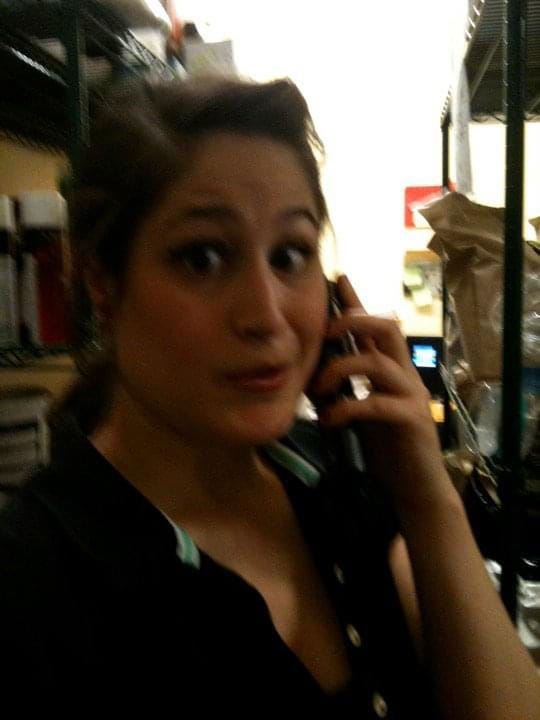
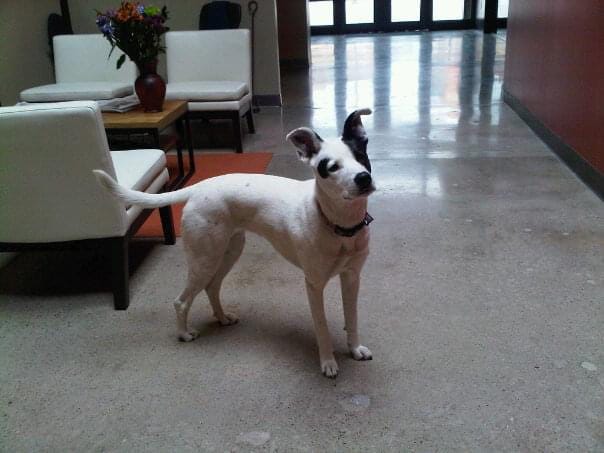
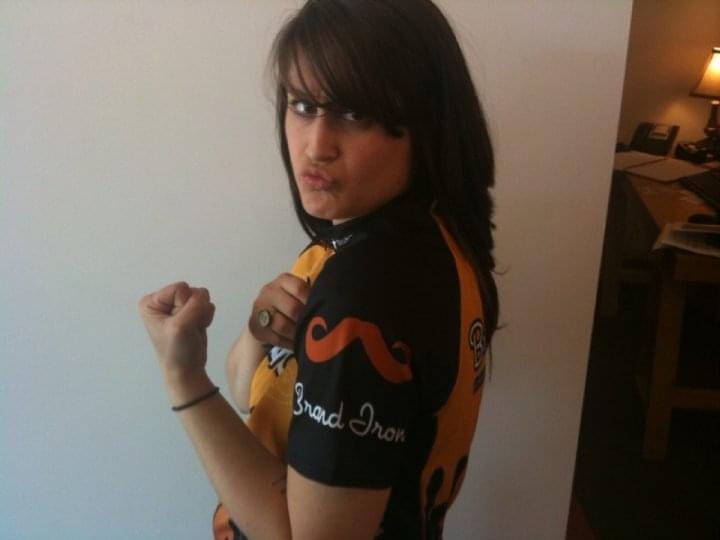
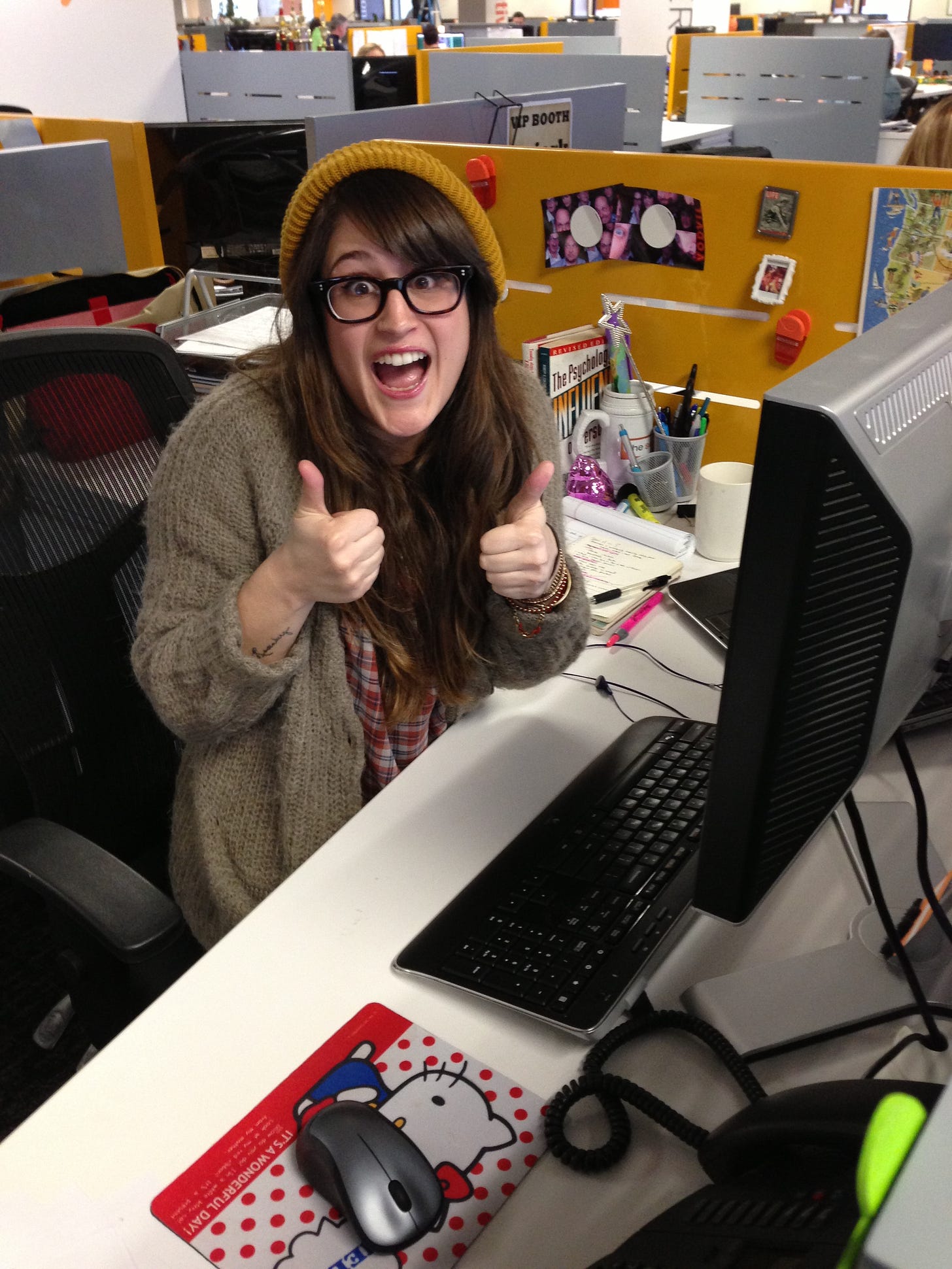

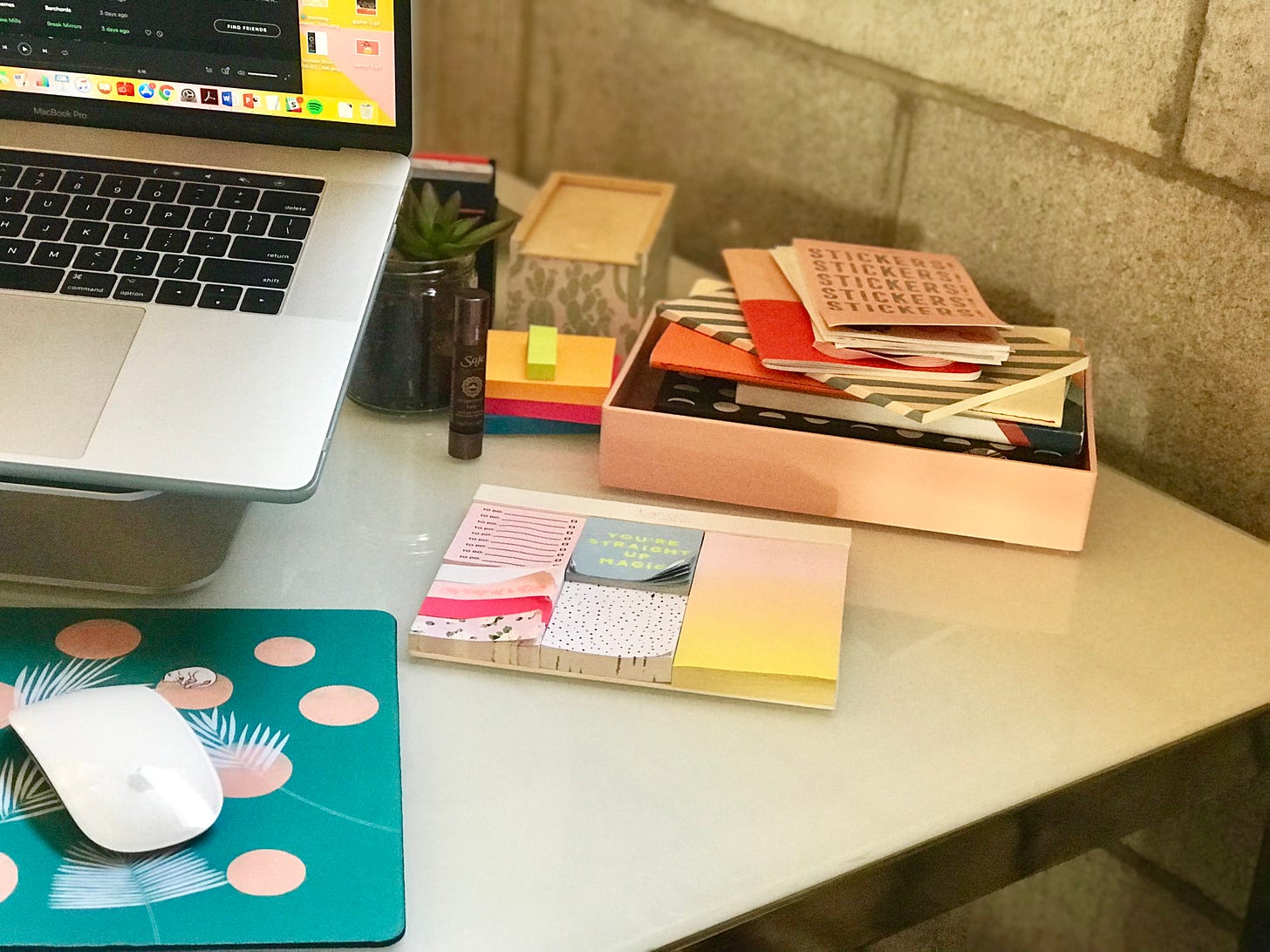
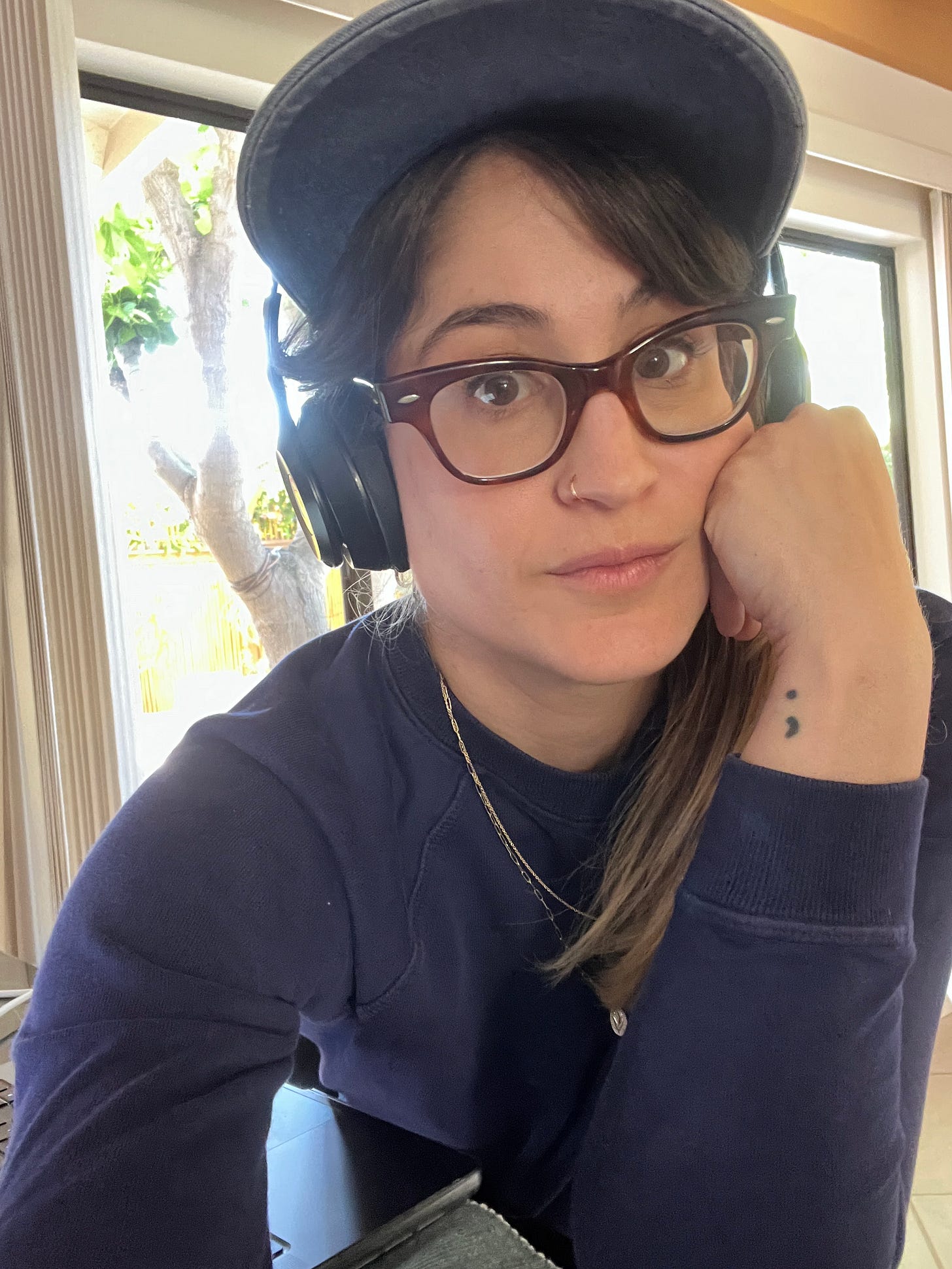

love this! when i took my coaching training, i realized quite quickly that i wasn't a career change I was after, just another string to my bow etc and it actually just made me realized that i already love my job ♡